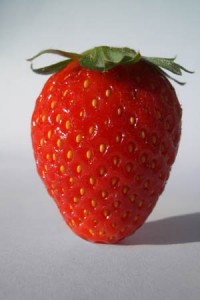
More evidence that low-calorie sweeteners are bad for your health
Studies show that artificial sweeteners can raise the risk of hypertension, metabolic syndrome, type 2 diabetes and heart disease, including stroke.

Natural Health News — Organic farms produce strawberries with fewer malformations and a higher proportion of fully pollinated berries relative to conventional forms, according to new study.
The study,published in the journal PLoS ONE was led by Georg Andersson of Lund University in Sweden.
Andersson and colleagues investigated the effect of organic farming compared to conventional. What they found was that the pollination success increased greatly with organic farming. The researchers speculate that this effect may be due to an increase in insect pollinator abundance and/or diversity that comes with organic farming.
They also determined that this effect was apparent within two to four years of the conversion, suggesting that there is not a significant lag time before pollination benefits are seen after adopting organic farming practices.
The study is based on studies of strawberry plants on twelve farms in the county of Skåne, Sweden. On the farms with ‘KRAV’ organic certification, where neither pesticides nor non-organic fertiliser are used, 45% of the strawberry flowers were fully pollinated. On the conventional farms, the corresponding figure was 17%.
The results, say Dr Andersson, “suggest that organic farming could enhance the pollination service in agricultural landscapes, which is important for developing a sustainable agriculture. The method made it possible to measure the pollination independent of landscape composition, soil-type and other factors that can affect pollination success”.

Please subscribe me to your newsletter mailing list. I have read the
privacy statement